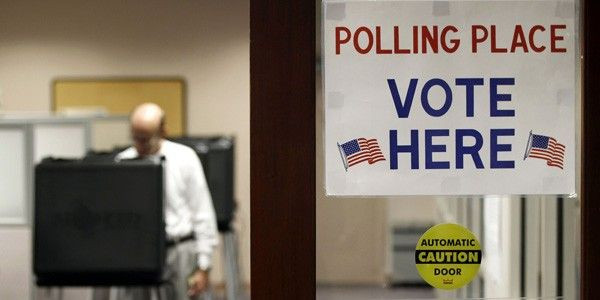Florida Democrats Push Back On Gov. Scott's Voter Purge

Democratic lawmakers from Florida are urging Gov. Rick Scott to abandon an effort to clear immigrants ineligible to vote from the state's rolls, pointing to early warning signs that legitimately registered citizens could be barred from voting.
Citing a need to prevent voting fraud, Florida state election officials have instructed county supervisors to excise non-citizens from the voting rolls. But a preliminary list of supposedly ineligible voters identified numerous people who did in fact have the right to vote, prompting supervisors to question expanding the sample list into a wholesale purge that state officials said could encompass some 182,000 names.
Six members of Florida's congressional delegation weighed in on Tuesday, sending Scott a letter asserting that the list sent to supervisors had been of questionable validity and charging that the process did not meet basic standards of accountability. The representatives asked the governor to halt the process until after the 2012 elections.
My main concerns are there is not transparency, there's no accountability and we've already seen the likelihood that there are potentially thousands of eligible voters who are going to be thrown off the voting rolls, Rep. Ted Deutch, one of the signatories, said in a followup interview. We've asked them to stop this process until there's some greater sense of transparency
Looming over the dispute are still-fresh memories of past Florida elections marred by voter disenfranchisement. In 2000, for example, the state enlisted a private contractor to ensure disqualified felons would not vote. As a result, monitors blocked eligible voters who had the same names as felons or who had seen their voting right restored after serving prison sentences.
I have been in this movie theater seeing this movie before, in the year 2000, Rep. Alcee Hastings, one of the signatories of the letter to Scott, said in an interview. I come at this with the history of having seen obstacles put in the way of people seeking to exercise their right to vote, Hastings added.
Under Florida law, supervisors would send letters to voters identified as ineligible; if those people do not respond within 30 days with documentation proving their citizenship, they would be dropped from the rolls. While some election supervisors said they would work assiduously to ensure no one is being wrongfully turned away, including by conducting followup inquiries, critics worry that people will be unaware they could be denied a vote until they show up at the polls in November.
What happens with the elderly person who thought it was junk mail? Hastings asked. What happens to the person who got to be a citizen after they got their driver's license? What happens to the person who is frail or doesn't speak English as well as you or I and nobody comes by the house to look at it or interpret it for them and they don't respond in the 30 days?
Hastings said he believed the push to dislodge non-citizens from the rolls is of a piece with a contentious new Florida law that tightens restriction voter registration. The League of Women Voters of Florida responded to the law by suspending their operations, saying the new penalties it imposes were too onerous. The federal Department of Justice is examining the law, and Rep. Debbie Wasserman Schultz -- one of the letter's signatories, and chair of the Democratic National Committee -- suggested in December that the law, along with similar new voting laws emerging from Republican statehouses, constituted an effort to rig an election.
Deutch said he was unsure of Scott's motivation. But he questioned the notion that voting fraud was widespread, noting that the 2008 election produced only 18 confirmed cases.
If you look at the legislation that passed and that he signed and you put this 182,000-name list together, one has to wonder whether the motivation is partisan or not, Deutch said in an interview. We have a long and sordid history of voter suppression in this country and it used to be by violence and intimidation and poll taxes, and now we have this list where we know that we've seen eligible voters tossed aside.
© Copyright IBTimes 2024. All rights reserved.




















